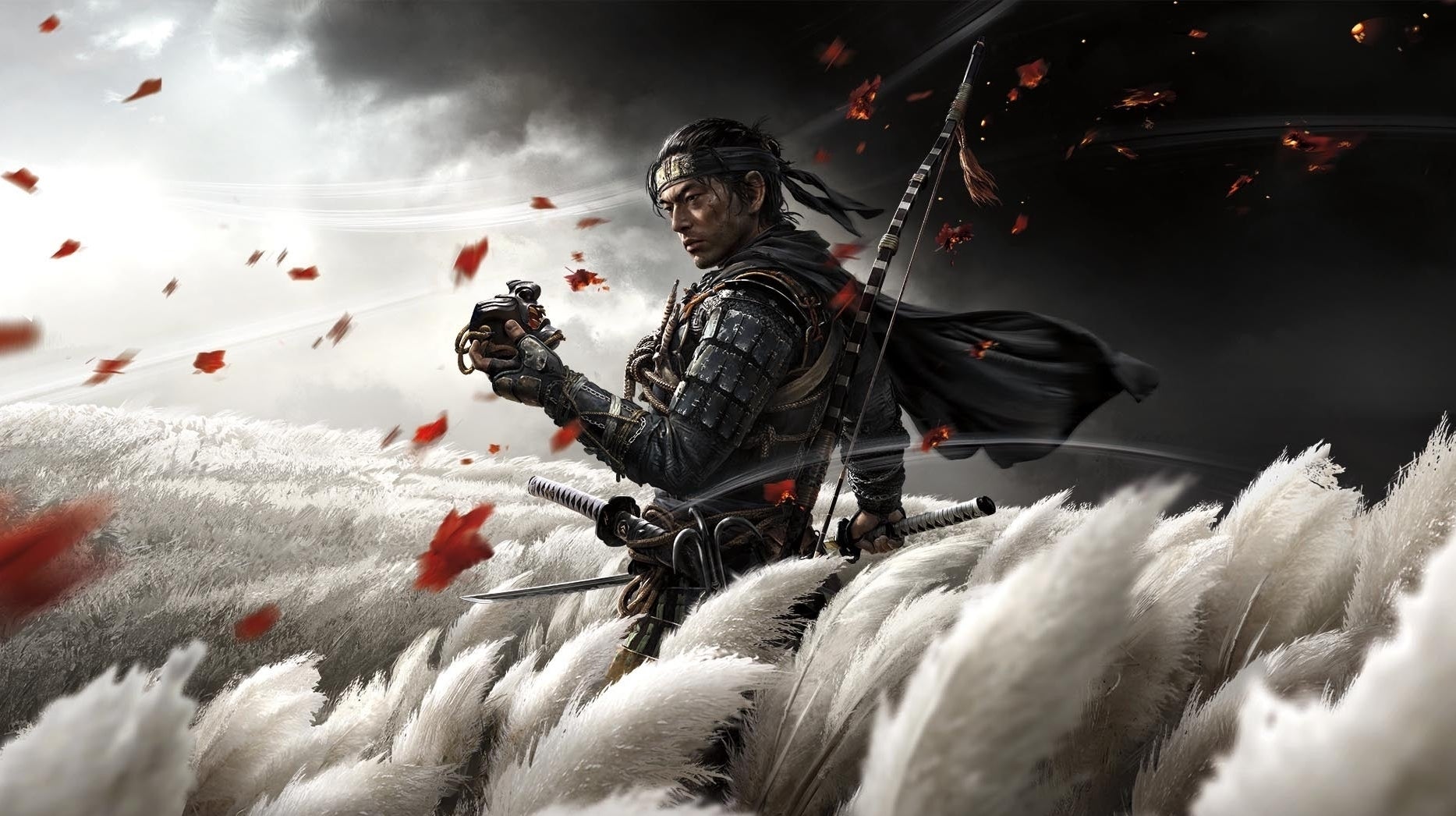Quite early on in Ghost of Tsushima, you’ll be introduced to its dramatic, one-on-one duels. Two warriors, a dozen yards apart, face each other down across the divide. Up close: narrowing eyes and crumpled brows. Hands hover at hips, knees bend, feet press down into the earth, muscle, sinew and fingers tighten. Then – bang! – combat. It’s a cracking moment, especially the first time you give one a try, and it’s also a cracking example of what Ghost of Tsushima’s all about. These heightened standoffs begin with shot-for-shot facsimiles of that famous scene from Yojimbo, an Akira Kurosawa classic that’s both a mirror of older westerns and an inspiration for the ’60s greats.
Ghost of Tsushima review
- Developer: Sucker Punch
- Publisher: Sony
- Platform: Reviewed on PS4
- Availability: Out on 17th July on PS4
They’re also, once you’ve done a few of them, slightly flat, the enemies you battle mostly re-using the same attacks and movements of ones you’ve faced before, and the concept quickly becomes a little overused, predictably occurring at the end of certain quests, and generally lacking the complexity to require more than a few tries each time. Like the game itself, they go for authenticity through facsimile – recreating moments without the requisite weight and context. And, like the game itself, they’re lacking a little depth. Despite the immediate and undeniable thrill, the gloss can be just a little too quick to wear off.
Still, much of Ghost of Tsushima is enjoyable enough. Developer Sucker Punch has definitely aimed high with its first full-length effort since InFamous Second Son, way back at the start of the generation in 2014. The much-trumpeted inspirations here are the stirring epics of samurai cinema. It’s a tough genre to crack, nevermind the potential for awkwardness in an American realisation of feudal Japan. Namechecked directors like Akira Kurosawa, who gets his own grainy, black-and-white mode in Ghost of Tsushima, are known for their lengthy epics of extraordinary nuance, adapting – and arguably mastering – the works of Shakespeare, or chipping away at the great problem of the human condition. Next to inspirations like that, Ghost of Tsushima is never really going to compare. It lacks the nuance and the depth, or the dedication, even, to telling a good story itself – as opposed to telling a story that simply keeps out of the way of the mechanics – and the slack left by its story isn’t picked up in those mechanics, either. But it has a kind of Hollywood, popcorn charm, which shouldn’t count for nothing.
In Ghost of Tsushima you are Jin Sakai, a samurai of noble birth, tasked with almost single-handedly fending off a Mongol invasion of the feudal Japanese island he calls home. In doing so you’re forced to evolve, from staid and honourable samurai to the Ghost, master of underhand tactics. And therein lies your central conflict, as the screenwriting gurus would put it: Jin has to defend the people of the island, but he does so at great cost, abandoning tradition, honour, and everything that comes with it. It’s a bit of a cliché – and one that happily departs from Sucker Punch’s stated aim for authenticity, when you read historians’ arguments that for most samurai in feudal Japan, there was no such code of honour at all – but Ghost of Tsushima is good at carrying you along with the drama.
It’s helped by some stellar voice work from a cracking cast, including a turn from the magnetic François Chau, of Lost fame, as a curmudgeonly master archer Sensei Ishikawa, and an imperious Patrick Gallagher as the big bad Khotun Khan, a fictional descendant of that famous one Ghengis. There are some stirring sequences, too, especially when Sucker Punch digs a little deeper into its characters to mine their pockets of rage, or just finds an excuse for another heroic charge, while the family-political intrigue is at least more accurate to the period than the lengthy monologuing on honour and tradition. And there’s a stunning, sweeping score to accompany it all, capable of dragging you up from even the deepest mid-game cutscene malaise, carrying you across rolling landscapes and striking wonderfully at the story’s noticeable highs.
